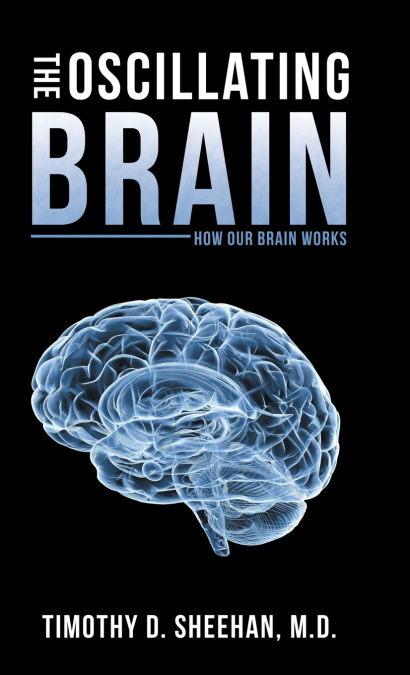
Timothy D. Sheehan M.D. / Timothy DSheehan M.D.
The Oscillating Brain explains for the first time how the human brain works. Neural oscillation is a form of repetitive activity which is characteristic of complex systems. The brain has extensive reciprocal connections. Reciprocal connectivity is the basis for neural oscillation. While some patterns of neural oscillation are localized (restricted to specific regions of the brain), others involve reciprocal connections between geographically separate areas of the brain permitting more widespread neural network interaction. Neural network oscillation transforms the brain’s three-pound mass of grey matter into a dynamic medium. Conscious experience involves the integrated interaction of both sensory and motor areas of the brain. Our experience of 'reality' is the product of brain activity. Reality, as it is constructed by our brain, is an inherently simplified version of the world that enables us to respond rapidly to developing situations in a fashion that promotes survival. Our reality is heavily biased by our emotional reactions. We see the world in terms of good and evil and continually strive for 'good' as a means of enhancing our sense of security. However, differences in our experience of good and evil have been a source of human conflict for as long as mankind has been on this planet. Global information networks and our increasing economic interdependence have made these differences increasingly difficult to ignore. Human striving for an absolute level of certainty and security threatens our day-to-day existence. We must learn to recognize the limitations of the human brain.